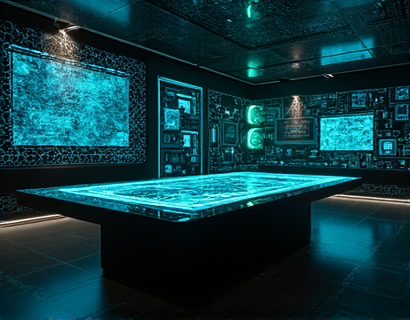Unlocking Ancient Wisdom: A Modern Guide to Historical Insights and Cultural Heritage
In an era where the pace of life often overshadows the richness of our past, there is a profound need to reconnect with the ancient wisdom and cultural heritage that have shaped our world. This guide aims to bridge the gap between historical insights and modern understanding, offering a comprehensive exploration of the timeless teachings and profound knowledge embedded in our shared history. Whether you are a history enthusiast, a cultural explorer, or simply someone seeking to deepen your appreciation of the past, this guide will provide valuable insights and perspectives that resonate with contemporary life.
The journey into ancient wisdom begins with an acknowledgment of the vast and diverse civilizations that have contributed to the tapestry of human history. From the monumental architecture of the Egyptians to the philosophical musings of the Greeks, each culture has left an indelible mark on our collective heritage. This guide will delve into the key aspects of these civilizations, highlighting their achievements, beliefs, and the lessons they offer us today.
Understanding Ancient Civilizations
The ancient Egyptians, for instance, were masters of engineering and astronomy. Their ability to construct the pyramids, monumental structures that have stood the test of time, speaks to their advanced knowledge of mathematics and architecture. The pyramids were not just tombs but also symbols of the pharaohs' divine right to rule and their connection to the gods. Today, these structures continue to inspire awe and provide insights into the religious and social structures of ancient Egypt.
Similarly, the Indus Valley Civilization, one of the earliest urban cultures, demonstrated remarkable planning and engineering skills. The cities of Harappa and Mohenjo-Daro featured sophisticated drainage systems and standardized weights and measures, indicating a high level of social organization and economic activity. The seals and artifacts found from this civilization offer a glimpse into their trade networks and cultural practices, which were far more advanced than previously thought.
Philosophical and Spiritual Insights
Beyond the tangible achievements, ancient cultures also provided profound philosophical and spiritual insights. The Greeks, for example, made significant contributions to philosophy, science, and the arts. Philosophers like Socrates, Plato, and Aristotle explored fundamental questions about existence, ethics, and knowledge. Their ideas continue to influence modern thought and continue to be relevant in contemporary discussions on morality, politics, and education.
The Eastern traditions, such as Buddhism and Taoism, offer different perspectives on life and the universe. Buddhism, founded by Siddhartha Gautama (the Buddha), teaches the path to enlightenment through the Four Noble Truths and the Eightfold Path. These teachings emphasize the importance of mindfulness, compassion, and the cessation of suffering. Taoism, with its emphasis on living in harmony with the natural world and the concept of Wu Wei (non-action), provides a holistic approach to life that resonates with modern environmental and wellness movements.
Art and Architecture
The artistic and architectural achievements of ancient civilizations are a testament to their creativity and ingenuity. The Parthenon in Athens, a masterpiece of Doric architecture, exemplifies the Greeks' pursuit of beauty and perfection. The intricate carvings and sculptures adorning the temple not only showcase artistic skill but also narrate mythological stories and historical events. Today, the Parthenon stands as a symbol of classical beauty and a source of inspiration for architects and artists worldwide.
In Mesopotamia, the ziggurats, massive temple structures with terraced steps, were central to the religious and social life of the Sumerians, Babylonians, and Assyrians. These structures were not only places of worship but also served as administrative and economic centers. The detailed reliefs and inscriptions found on these monuments provide valuable insights into the religious beliefs, political systems, and daily life of these ancient peoples.
Cultural Heritage and Modern Relevance
The study of ancient civilizations and their cultural heritage is not merely an academic pursuit; it has profound implications for our modern world. Understanding the successes and failures of past societies can inform current and future decision-making. For example, the collapse of the Mayan civilization, attributed to factors such as environmental degradation and social inequality, serves as a cautionary tale about the importance of sustainable practices and social cohesion.
Moreover, the cultural heritage of ancient civilizations enriches our contemporary culture in numerous ways. From the architectural styles that influence modern buildings to the literary works that continue to be studied and adapted, the legacy of the past is deeply embedded in our present. Festivals, art, literature, and even modern scientific methods often draw inspiration from ancient traditions, demonstrating the enduring relevance of historical insights.
Preserving and Sharing Ancient Knowledge
The preservation and sharing of ancient knowledge are crucial for maintaining a connection to our roots and fostering a deeper understanding of the world. Archaeological excavations, scholarly research, and cultural initiatives play a vital role in uncovering and interpreting the remnants of ancient civilizations. Museums, exhibitions, and educational programs bring these discoveries to the public, making history accessible and engaging.
Digital technology has also revolutionized the way we access and interact with ancient knowledge. Online databases, virtual tours, and interactive platforms allow individuals from around the world to explore historical sites and artifacts in detail. These resources democratize access to information, enabling a broader audience to engage with and appreciate the richness of cultural heritage.
Personal Growth and Inspiration
Engaging with ancient wisdom and cultural heritage can be a transformative experience, offering personal growth and inspiration. The timeless teachings of ancient philosophers and spiritual leaders provide guidance and perspective in navigating the complexities of modern life. The stories and myths of old civilizations can spark imagination and creativity, while the historical achievements serve as a reminder of human potential and resilience.
Moreover, studying the past can foster a sense of belonging and identity. Understanding the contributions of various cultures to the global tapestry helps break down barriers and promotes a sense of unity and shared humanity. This knowledge can inspire individuals to contribute positively to their communities and the world at large, carrying forward the legacy of those who came before us.
Conclusion
Unlocking ancient wisdom and cultural heritage is a journey that enriches our understanding of the world and ourselves. By exploring the achievements, beliefs, and teachings of past civilizations, we gain valuable insights that can inform and inspire our modern lives. This guide has highlighted the importance of these ancient traditions and their continued relevance in today's world. As we continue to uncover and appreciate the rich tapestry of human history, we honor the past while shaping a more informed and compassionate future.










































